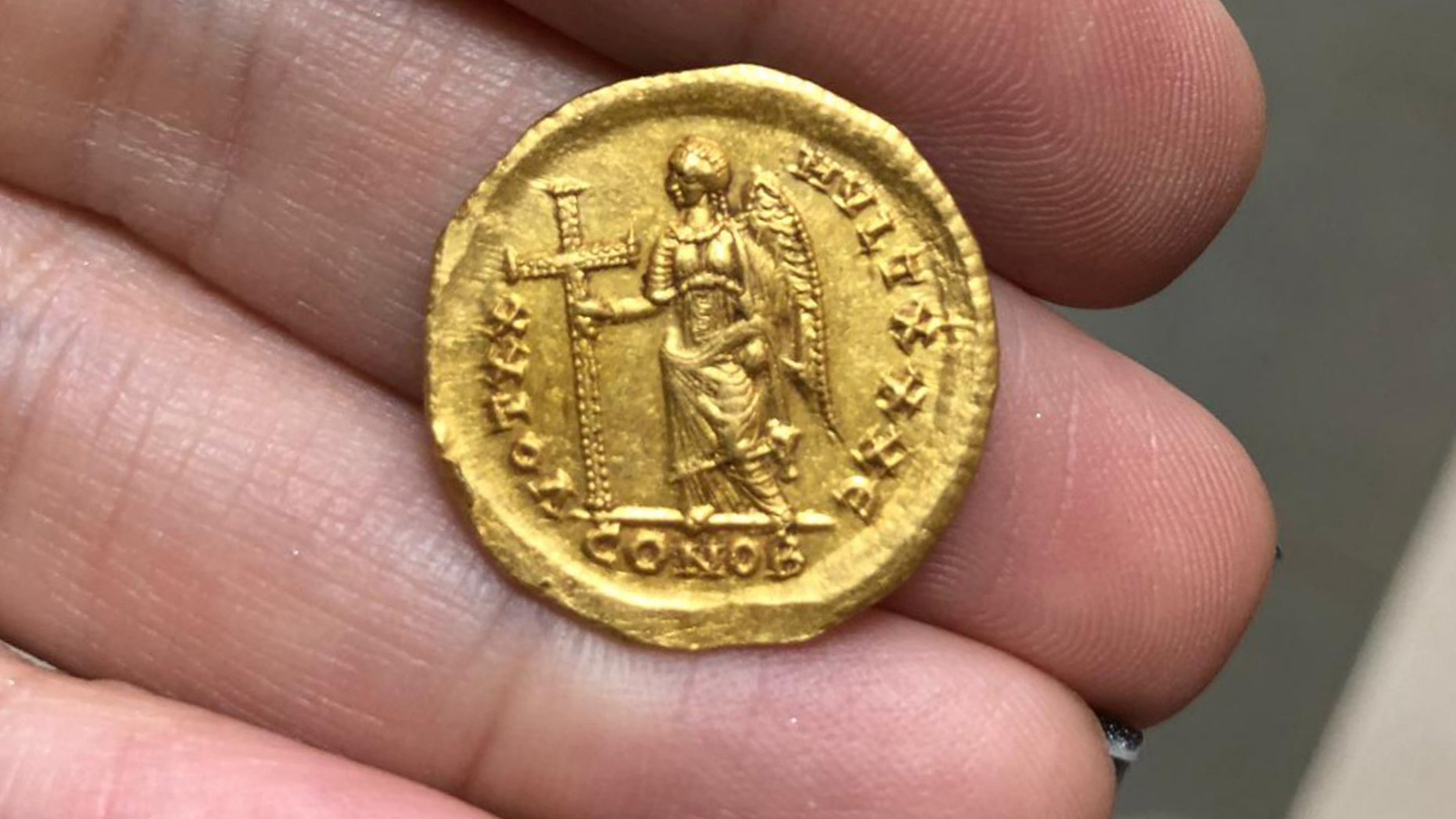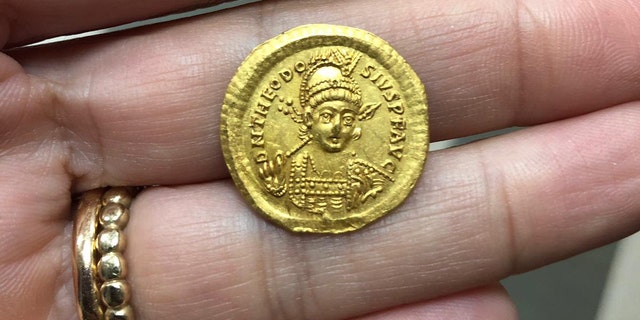
The coin, which shows Goddess Victoria holding the Staff of the Cross (Photograph Nir Distelfeld, Israel Antiquities Authority)
An extremely rare Byzantine gold coin has been found by a group of schoolchildren in northern Israel. The coin, which was spotted in February, is the first of its kind discovered in the country, according to experts.
The four 9th grade students from Haemeq Hamaaravi High School in Kibbutz Yifat were orienteering along a stream in the Galilee region when they spotted the coin. The schoolkids – Ido Kadosh, Ofir Sigal, Dotan Miller and Harel Grin – realized they had made a significant find and reported it to their geography and history teacher Zohar Porshyan, who contacted the Israel Antiquities Authority.
“The gold coin is a solidus minted by the emperor Theodosius II in Constantinople (now Istanbul) around 420–423 CE,” explained Dr. Gabriela Bijovsky, a numismatic expert at IAA, in a statement obtained by Fox News. “Similar coins are known from the Eastern Byzantine empire, but this is the first of its type discovered in Israel. One side depicts the image of the emperor and the other shows the image of the Goddess Victory holding the Staff of the Cross.”
LAST SUPPER SITE REVEALS ITS SECRETS IN STUNNING 3D LASER SCANS
For their find, the boys were awarded a certificate for good citizenship by the IAA.

The Haemeq Hamaaravi high school pupils who found the gold coin (Photo: Suzi Frenkel)
Israel continues to offer glimpses into its rich history. The room venerated as the site of Jesus’ Last Supper, for example, has been revealed in stunning detail thanks to remarkable 3D laser scanning technology.
Last year, a previously-unknown 1,500-year-old painting of Christ’s face was uncovered at a Byzantine church in Israel’s Negev desert.
'JESUS' FACE' UNCOVERED AT ANCIENT CHURCH IN THE ISRAELI DESERT
Also in 2018, archaeologists announced the discovery of a large 1,500-year-old pool and elaborate fountain at the site of an ancient church near Jerusalem. Built during the Byzantine era, the pools date back to between the 4th and 6th centuries A.D., according to the Israel Antiquities Authority.

The coin, which bears the image of Byzantine Emperor Theodosius II. (Photograph Nir Distelfeld, Israel Antiquities Authority)
In 2017, archaeologists uncovered a stunning 1,500-year-old Christian mosaic that was once the floor of a church or monastery in the ancient coastal city of Ashdod-Yam.
An ancient Greek inscription was found on a 1,500-year-old mosaic floor near the Damascus Gate in the Old City of Jerusalem in 2017. The inscription mentions the Byzantine emperor Justinian, who ruled in the 6th century A.D., and commemorates the building’s founding by a priest called Constantine.
MYSTERIOUS POOL AND FOUNTAIN DISCOVERED AT ANCIENT CHRISTIAN SITE IN ISRAEL
A 1,500-year-old church was discovered in 2015 at a Byzantine-era rest stop between Tel Aviv and Jerusalem. In 2014, the remains of another church from the same period were uncovered in southern Israel.
CLICK HERE TO GET THE FOX NEWS APP
Experts also believe they have found the lost Roman city of Julias, formerly the village of Bethsaida, which was the home of Jesus' apostles Peter, Andrew and Philip.
Follow James Rogers on Twitter @jamesjrogers
Source: Read Full Article